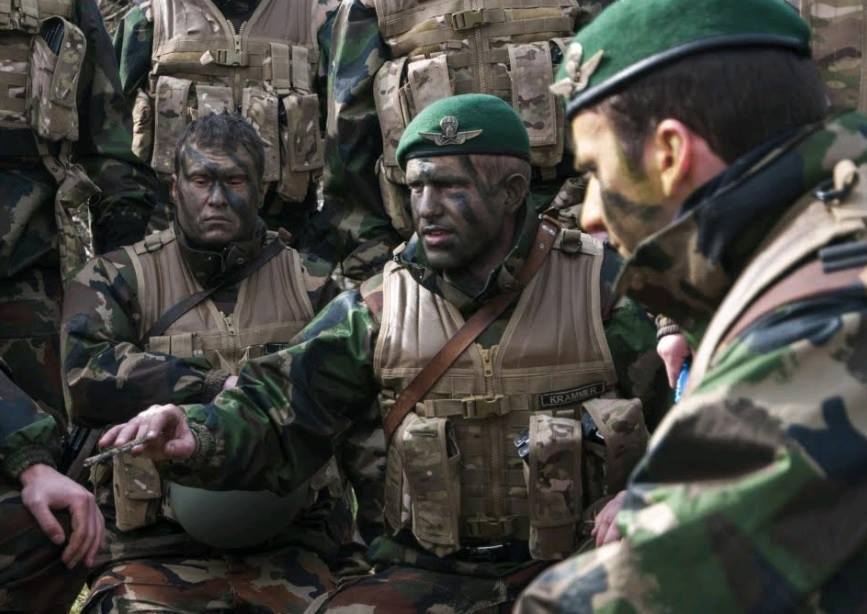Poland – When Russia launched its invasion of Ukraine on February 24, it became apparent that Europe would see a refugee crisis of the magnitude it hasn’t seen since the Second World War. Poland, being Ukraine’s largest neighbouring country and housing already more than 1 million Ukrainians who had moved to Poland from in the years following Russia’s first aggression against Ukraine in 2014, was expected to bear the brunt of the refugee wave.
It was a role that it played magnificently, as an army of Polish volunteers managed to, together with the help of business leaders, religious communities and representatives of state and local government, house, feed and cloth the millions of Ukrainian women and children who crossed the border and took shelter on Polish territory.
Seeing the scale of the aid, the US Ambassador to Poland, Mark Brzezinski remarked that Poland is a “humanitarian superpower” for the outpouring of support its people have shown to refugees from Ukraine and suggested that the volunteers should be collectively awarded the Nobel Peace Prize.
Half a year has now passed since Russia launched its full-scale invasion and the challenges which Ukrainian refugees, and the Poles helping them, are facing have started to change.
Initially, the task was to provide the refugees with basic care, such as finding them a place where they could have a roof over their head, food, hygiene articles and clean clothes. Now, the process of integrating Ukrainians in Polish society and giving them the help needed to process what has happened is becoming increasingly important.
Poland’s largest insurance company, PZU, joined the effort by launching a project meant to integrate Polish and Ukrainian children through joint summer camps. It is an effort that over time will have to be repeated on a much larger scale across by both state institutions, NGOs and private initiatives.
Helping the vulnerable youth
As of July 2, 2022, more than 1.2 million Ukrainians refugees had received a national identity number (PESEL), giving them access to social welfare and the Polish labour market.
According to official PESEL figures, 46.5% of the refugees are children, meaning that much of the Polish effort to aid Ukrainians by giving them a chance to integrate into Polish society will have to be directed to very young individuals.
Coping with the horrors of war is difficult for people of all ages, but children are particularly vulnerable, often not being able to process what they have experienced.
Ukrainian children who have arrived in Poland are at the risk of becoming socially isolated unless they are helped to find new friends, make new contacts and start learning how to communicate with young Poles their own age. Social isolation would only add to their already overwhelming psychological stress, risking to create long-lasting psychological trauma among many of the young refugees.
Volunteers, Polish companies, state and local governments are all involved in exploring ways that will aid the Ukrainian children to become involved in Polish society.
Building a common future
In order to help the Ukrainian children tie their first interpersonal bonds with fellow young Poles, PZU, has organized a total of 10 summer camps aiming to integrate Polish children and young Ukrainians.
All together, more than 300 Polish and Ukrainian children have spent a week of their summer in the Masurian Lakeland District in north-eastern Poland.
The summer camps are packed with outdoor activities such as windsurfing, sailing, kayaking and archery, but emphasis is also put on a general healthy way of life.
Therefore, Poland’s most famous TV-chef and Michelin-star restaurateur, Wojciech Modest Amaro, paid the children a visit in the beautiful village of Wilimy on August 11 to teach them how to prepare some classic and healthy Polish and Ukrainian dishes.
The children were taught how to master the techniques needed to be able to swiftly whip up some Ukrainian cold borscht soup, beet dumplings with cabbage, crispy turkey and waffles with cheesecake.
“It was a pleasure to combine the flavours of Polish and Ukrainian cuisine together with our young cooks who were so eager to learn. We showed the children that there isn’t much distance between us.” – the chef commented.
Poland’s Deputy Prime Minister and Minister of State Assets, Jacek Sasin, stated that he is proud that companies of which the State Treasury own shares are helping young Ukrainians in need.
He added “thanks to the PZU summer camps, children from Ukraine and Poland can spend summer holiday together and integrate. It makes it possible for the Ukrainian children to take their mind off, even if just for a moment, the hell of war that is taking place across our eastern border.”
The German MEP Dennis Radtke, representing CDU and the EPP, is impressed by how countries in Central Eastern Europe have taken in Ukrainian refugees with open arms, stating “Poland, and the broad Central and Eastern European region has been at the very forefront of humanitarian efforts towards Ukraine”.
He added that the “Dobre Kolonie” summer camps are an example of Poland’s hospitality and said that the EU must do more to help too.
“More funds have to be made available to this cause. The passion we see in the people helping Ukrainian children should be seen as an example for everyone in the EU,” – the German MEP said.
Whether or not the EU will earmark additional funds for Ukrainian refugees, the schools in Poland will have to prepare for hundreds of thousands of new Ukrainian students in the next semester. For many Ukrainian children, September 1 will be their first day in Polish school. Hopefully, it will be a little bit easier for them to make new friends after already having spent time with Polish children during the summer.




